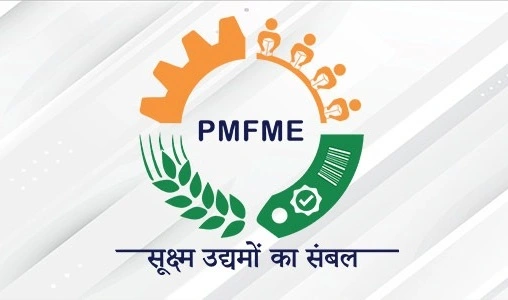PM FME Scheme Insights: What Sets It Apart from Other MSME Initiatives
India’s micro-food processing industry plays a crucial role in boosting rural incomes, employment opportunities, and entrepreneurship. In a country where food processing is integral to livelihood, the government’s initiatives to support this sector have made a substantial difference. Among these, the Pradhan Mantri Formalisation of Micro Food Processing Enterprises or PM FME scheme stands out, offering unique benefits tailored to the needs of micro food processing entrepreneurs.
Launched under the Atmanirbhar Bharat Abhiyan in 2020, the PM FME scheme was specifically tailored to enhance the competitiveness of micro-enterprises in the unorganised food processing sector. With a vision to formalise and streamline this crucial industry, it aims to provide support for capacity building, access to finance, and marketing, ensuring food processing businesses in India can thrive and expand.

Key Components of the PM FME Scheme
The PM FME scheme isn’t just another MSME initiative. Its tailored approach ensures individual entrepreneurs, proprietors, and small groups involved in food processing—such as Farmer Producer Organizations (FPOs), Self-Help Groups (SHGs), and Cooperatives—can benefit from the program. Let’s explore some of the most important aspects of the scheme:
Credit-Linked Subsidy
One of the most notable features of the PM FME scheme is the credit-linked subsidy offered to eligible food processing units. This subsidy covers 35% of the total project cost, with a maximum limit of ₹10 lakh per unit. For micro-food processing entrepreneurs, this represents a vital financial cushion, enabling them to kickstart or scale their businesses with reduced financial strain.
This credit-linked subsidy not only helps individual entrepreneurs but also extends to larger groups like SHGs and FPOs, offering them access to the resources they need to improve their production processes and meet market demand.
Expense-Sharing Structure
The cost-sharing structure under the PM FME scheme reflects the combined efforts of both the central and state governments. In most cases, the cost is split 60:40 between the central and state governments. However, for North-Eastern and Himalayan states, the ratio shifts to 90:10. This increased support for these regions acknowledges the challenges faced by businesses in these areas, offering them additional financial backing.
Additionally, for Union Territories, the central government takes on either 100% of the cost or a 60:40 ratio if the Union Territory has a legislature, ensuring a flexible approach based on local governance structures.
Seed Capital for SHGs
One of the key advantages of the PM FME scheme is its focus on supporting Self-Help Groups (SHGs). To enable SHGs to access working capital and purchase small tools, an initial seed capital of ₹40,000 per group is provided. This is particularly beneficial for women-led SHGs, offering them the resources they need to establish and grow small food processing businesses.
By offering this capital, the scheme promotes entrepreneurship at the grassroots level, ensuring that even the smallest food processing businesses can formalise and grow, boosting rural economies in the process.
Support Benefits of the PM FME Scheme
The PM FME scheme offers several valuable benefits for micro-food processing entities that make it a standout initiative in comparison to other MSME schemes. Let’s take a closer look at these benefits:
1. Marketing & Branding Support
A significant part of scaling a food processing business is building a strong market presence. The PM FME scheme provides a 50% financial grant specifically for branding and marketing support. This grant enables businesses to promote their processed food products, opening doors to larger markets and creating a wider customer base.
2. Capacity Building Assistance
Training and development are essential for any business to thrive. Under the PM FME scheme, capacity building is a critical component, ensuring that entrepreneurs and their teams receive adequate training. Whether it’s about food processing techniques or entrepreneurship development, the scheme ensures businesses have the skills and technology they need to succeed in a competitive market.
3. Support for Operational Kickstart
Access to working capital is often a challenge for small businesses. Through the PM FME scheme, entrepreneurs receive initial seed capital to meet their working capital needs and purchase small tools, with a provision of up to ₹4 lakh. This funding significantly helps businesses in their early stages, allowing them to commence operations without excessive financial strain.
4. Establishing Common Infrastructure
One of the distinguishing features of the PMF ME scheme is its focus on common infrastructure. Entrepreneurs can benefit from credit-linked subsidies of 35% of the eligible project cost (up to ₹3 crore) for establishing food processing lines, incubation centres, and other necessary infrastructure. By providing this shared infrastructure, the scheme fosters collaboration, helping smaller enterprises leverage state-of-the-art facilities they might not otherwise afford.
Government Subsidy Loan for Business
While the PM FME scheme offers its unique advantages, it also works in tandem with other MSME initiatives. A crucial element of this support is the availability of government subsidy loans for businesses. These loans are designed to provide affordable access to capital, ensuring that businesses can obtain the necessary funding without facing excessive financial hurdles.
Government subsidy loans for businesses offer reduced interest rates, longer repayment periods, and lower collateral requirements, making them attractive for MSMEs looking to expand or upgrade. Entrepreneurs can benefit from the credit-linked subsidy under the PM FME scheme, reducing their financial burden and enabling access to capital for growth.
The PM FME Scheme’s Unique Value for Entrepreneurs
The PM FME scheme is a game changer for the food processing sector, offering a well-rounded package of subsidies, loans, and support tailored to small and micro-entrepreneurs. With its focus on branding, capacity building, and infrastructure, it sets itself apart from other MSME initiatives.
Moreover, government subsidy loans for businesses in the food sector provide critical financial backing, helping new businesses launch and existing ones expand effectively. As food processing businesses look to expand, the PM FME scheme offers an unparalleled opportunity. Whether you’re an individual entrepreneur or part of a cooperative, the scheme’s various components ensure that you have access to the resources needed for success.
For those looking for financial solutions tailored to their business needs, you may look for commercial banks like HDFC Bank. They offer a range of loan services designed to help you take full advantage of initiatives like the PM FME scheme. Reach out today to explore how we can support your journey to business growth.



